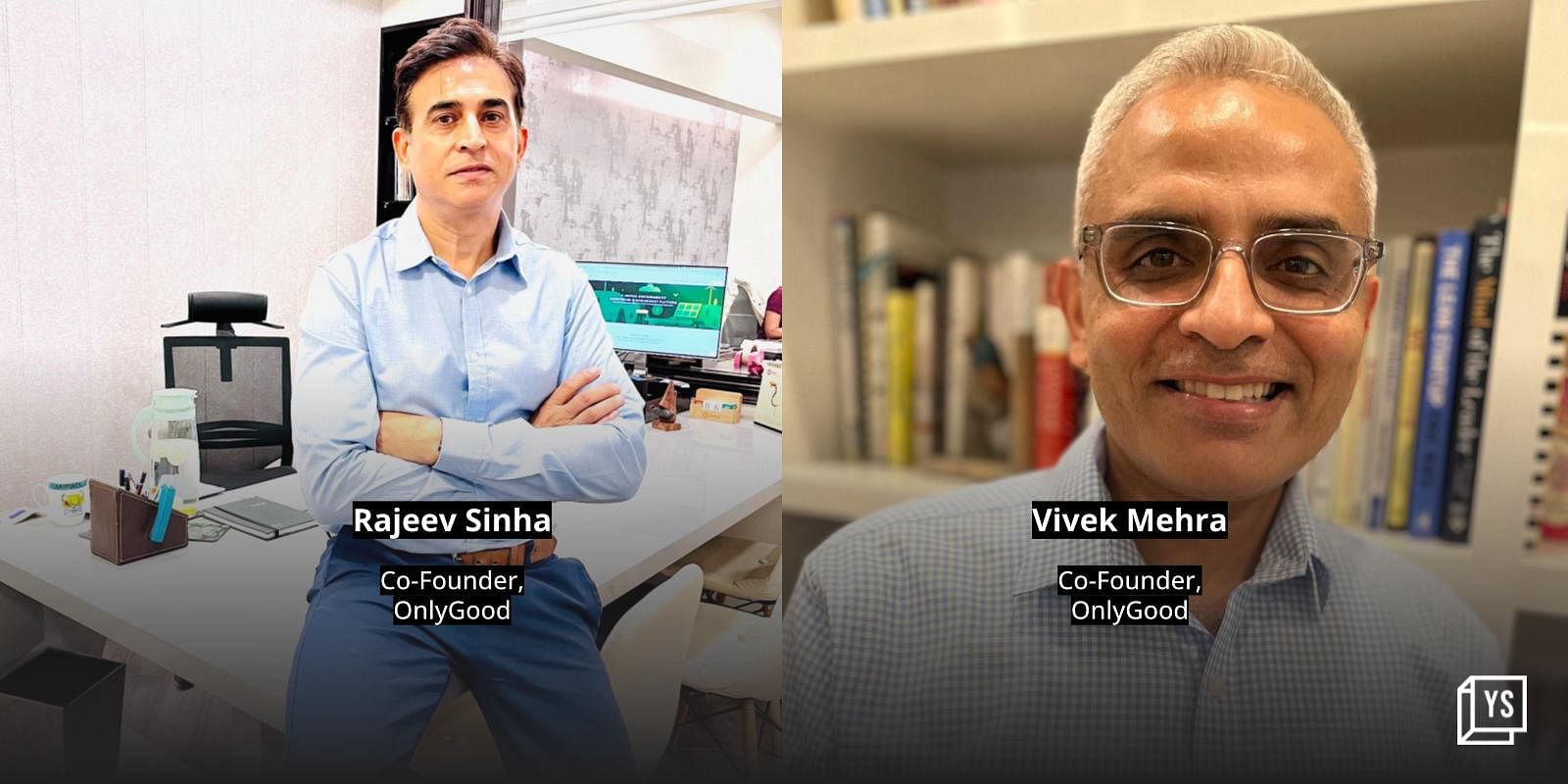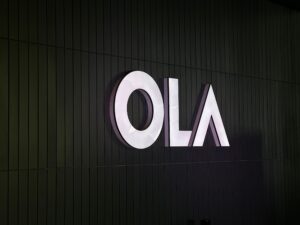Today, blockchain technology, climate change, carbon footprints, carbon emissions, etc., are the talk of the town.
With blockchain becoming the “next big thing”, and climate change the most pressing issue at present, businesses and governments are actively brainstorming to leverage the technology to minimise the other.
As per a whitepaper published by the European Commission, blockchain can improve the transparency, accountability, and traceability of greenhouse gas emissions.
Moreover, it can be used through smart contracts to better calculate, track, and report on the reduction of the carbon footprint across the entire value chain.
Working on this is the Gurugram-based startup . In 2020, Rajeev Sinha and Vivek Mehra launched the blockchain-integrated cloud-based platform, which works as a carbon accounting software, enabling companies to track their carbon emissions against established enterprise goals.
The company formally began its operations in April 2022 with a 20-member team.
But why blockchain?
Rajeev tells YourStory, “Blockchain helps authenticate the traceability of the purchases made. It is open source and helps us integrate various features and attributes on one platform. It makes business transactions very easy, accessible, transparent, and secure – without the need for any central clearing authority.”
The business-to-business (B2B) startup provides its clients with a dashboard with carbon accounting, monitoring, reporting, rechecks, carbon certifications, and sustainability features.
It offers a subscription-based service, which includes a workshop to explain and set up a carbon accounting capability within the company, a carbon monitoring dashboard, an auditor dashboard to verify the carbon data, and quarterly ESG reports to be shared with partners and suppliers.
“This helps us showcase the imminent hotspots of carbon emissions for the company,” says Rajeev.
Its optional features include carbon footprint prediction, ERP integration, and Scope 3 Emissions Guidance.
The startup collates data, including water, electricity, waste generated, and vehicle usage and emission—provided by companies through online and on-ground sources—and systematically organises it to create a baseline report.
According to the co-founder, blockchain technology verifies and validates these data points to ensure it’s trustworthy. “So, if someone discloses their carbon footprint, who can be sure that the numbers are trustworthy? This is where blockchain comes into play,” he adds.
For instance, if a company wishes to calculate its carbon footprint, it can share its electricity meter readings and water bills. The software ingests data through a variety of formats: directly from devices and sensors on the meters, MS Excel, or from enterprise resource planning (ERP) systems through pre-programmed interfaces.
Once the platform verifies the data, it applies emission factors of the particular country or region to calculate the carbon footprint of the company. Most of the time, OnlyGood uses the UNFCCC standard emission factors and calculates the carbon footprint, measured as TCO2e (Tonnes per carbon emitted).
“This helps companies understand their baseline emissions, set goals, and embark on a new vision of growth. It also helps them to understand their carbon accounting and internal emission norms,” Rajeev adds.
Additionally, OnlyGood provides a dashboard with role-based access and security controls, which companies can share with partners across the supply chain (with data masking where needed).
Besides blockchain, the API-driven platform includes Python, Machine Learning, and Artificial Intelligence technology to ensure proper results through streamlined performance. Moreover, all the captured data is encrypted and GDPR (general data protection regulation) compliant.
The startup takes anywhere between two to six weeks to analyse and provide reports to its clients, depending on the complexity of the data. It says its results are 100% accurate as it uses international norms for converting the data.
At present, OnlyGood caters to nearly 50 domestic and global companies in sectors, including apparel, automotive, manufacturing, and financial services. These companies are Brij Designs, Afflatus Group, Prits Group, Expressions India, Vanca Fashions, Real Fashion, Bharti Exports, Bharat Group, and SKA Exports, to name a few.
“The world is buzzing with talk of sustainability and carbon emissions and footprint. OnlyGood has helped us throughout in simplifying the whole process, generating a carbon baseline, sustainability dashboard, and a premium ESG report. We now look ahead of our competitors, hoping to get more orders from this season,” says Kshitij Rohatgi, CEO of Brij Designs.
While the platform does not provide carbon offset services, it allows companies to use its carbon capture initiatives, such as tree plantations. It also links its clients with certified carbon offsetting agencies.
The market
Available in India, the US, and Europe, OnlyGood charges $499 per month (India) and $999 per month (Europe and US), which may vary depending on the features the companies choose.
While the co-founder declined to comment on the company’s revenue, Rajeev says the company sees 90% of its business coming from India. Bootstrapped with Rs 3.5 crore, the startup now witnesses 15% monthly growth.
According to MarketsandMarkets research, the global carbon emission management market was valued at $9 billion in 2020, projected to reach $12.2 billion by 2025, growing at a CAGR of 6.2% during the period.
The startup competes with Net0, Emitwise, Plan A, and Watershed. Ask Rajeev what sets OnlyGood apart from its competitors, and he says that the startup can read data directly from remote sensors and devices, including water and electricity meters, reducing a company’s burden of manual data collection, speeding up the compliance process, and enhancing the veracity of the data.
Way ahead
Rajeev expects OnlyGood to generate $1 million in revenue by the end of 2022, and clock 4-5X growth in 2023.
By the third quarter of 2023, the co-founder also expects 40-45% growth in international and 55–60% growth in Indian partnerships.
The startup plans to target EU partners of India-based exporters, especially in countries with strong legislation for carbon disclosure, including Denmark, the UK, Germany, and France. Also, it aims to work with SMEs and manufacturing units in Bangladesh and China, which export to the EU.










